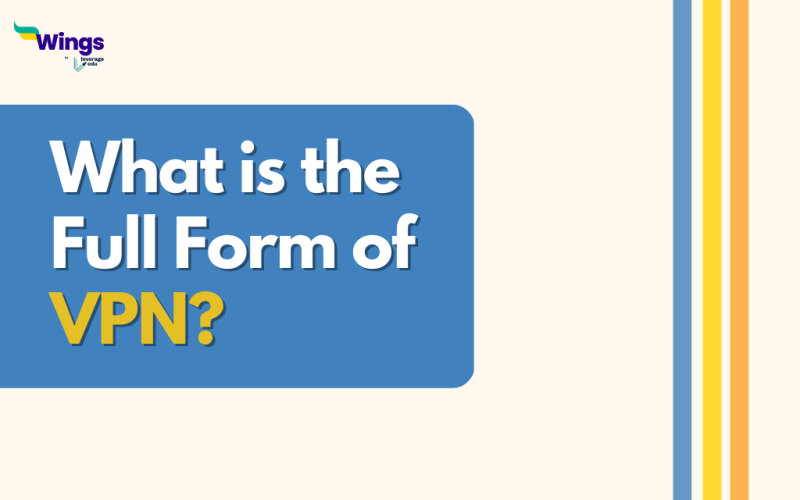The full form of VPN is Virtual Private Network. VPN helps in maintaining privacy and security by providing a safe connection when working on a less secure network on the internet. It also aids in transmitting sensitive information and prevents hackers from eavesdropping. This in turn allows the users to work remotely without worrying about privacy and safety.
How do VPNs Operate?
Table of Contents [show]
The following are the ways through which VPNs successfully provide a secure connection to the user:
- Using robust protocol technology VPNs function by establishing a reliable tunnel.
- It encrypts all of the user’s correspondence by hiding their IP address behind its IP address.
- It helps users to freely and safely access network resources as their entire activity is routed through a secure tunnel.
Things Covered Under VPN
VPN helps in hiding a lot of sensitive information that can jeopardize the privacy of someone. Following are some of the items that the VPN hides in order to provide a secure connection:
- IP address and location
- Web activity – to maintain internet freedom
- Devices
- Browsing history
- Location for streaming
Also Read: BTech in Cyber Security
Types of VPN
VPNs are mainly of 2 types both of which are mentioned below:
1. Network-based VPN – This type of VPN connects two networks together by establishing a secured connection over an unsecured network.
2. Client-based VPN – This type of VPN helps in providing a secure connection between a single user and a remote network. To make the VPN connection there is always an application involved.
VPN Protocols
To ensure the stability of networks, there are various types of VPN protocols put in place some of which are mentioned below:
- SSL (Secure Sockets Layer)
- TLS (Transport Layer Security)
- IPsec (IP security)
- PPTP (Point to Point Tunneling Protocol )
- L2TP (Layer 2 Tunneling Protocol)
So, this was VPN full form and other important information related to it. For more such informative articles keep following our page.
 One app for all your study abroad needs
One app for all your study abroad needs















 45,000+ students trusted us with their dreams. Take the first step today!
45,000+ students trusted us with their dreams. Take the first step today!
